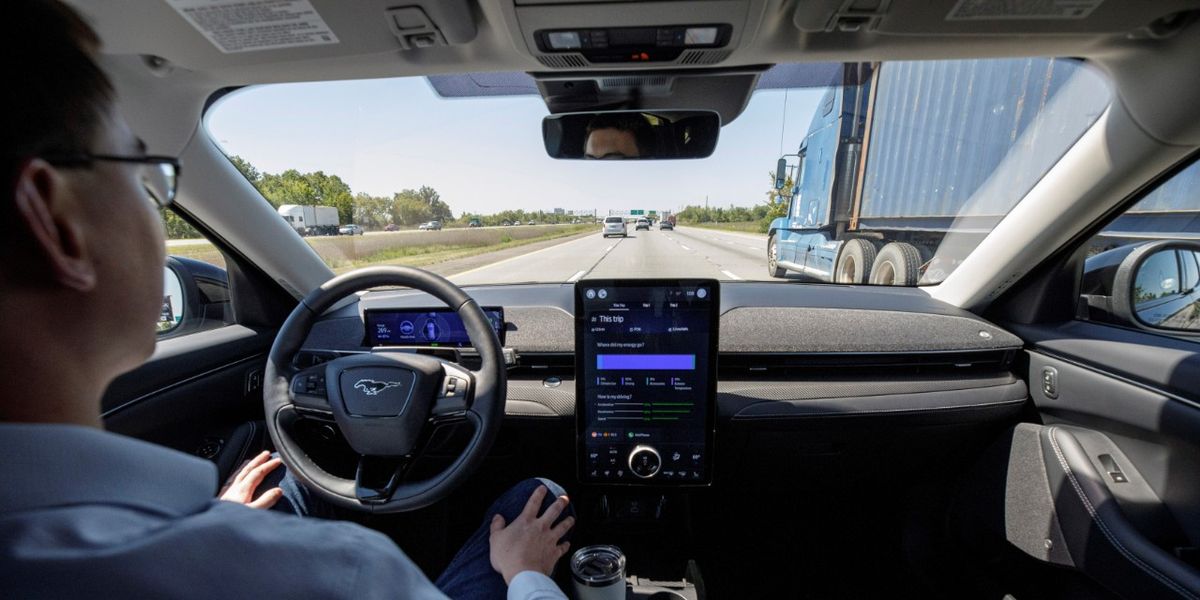Ford BlueCruise Adds Automatic Lane Changing, Starting with Mustang Mach-E

Ford will launch version 1.2 of its hands-free driving system this fall. It will first appear on the 2023 Ford Mustang Mach-E before rolling out to other models. The system—called BlueCruise on Ford models and ActiveGlide on Lincolns—gains lane-changing assist, predictive speed assist, and in-lane repositioning features.Ford says the newly added features won’t be available to older vehicles via an over-the-air update, at least not yet.
Ford’s hands-free cruise control technology is set to take a step forward this fall when the company adds three new features to its roster. Set to launch first on the 2023 Ford Mustang Mach-E electric SUV this fall, version 1.2 of the system brings three new features, including one that aids in lane change maneuvers.
Called BlueCruise on Ford models and Active Glide on Lincoln ones, the system relies on cameras, sensors, and software and allows the driver to remove their hands from the wheel while the system handles physical piloting duties. Like other hands-free driving systems available from rivals such as General Motors and BMW, the system isn’t entirely self-driving as it requires the driver to remain alert and ready to take control of the vehicle.
Ford
The more advanced features included in version 1.2 will require the driver to take over less often though. For example, using the new lane-change assist feature allows the driver to remain in hands-free mode by having the car maneuver to an adjacent lane simply by tapping the turn signal stalk. Ford claims the vehicle will even suggest a lane change to the driver if it detects that traffic in an adjacent lane is moving quicker than the one it’s in.
The other two features are designed with driver comfort in mind. Predictive-speed assist will automatically slow the vehicle’s speed when encountering a sharp turn on the highway similar to how a human driver might and an in-lane repositioning feature tells the system to move the vehicle from the center of the lane to closer to the outside edge of the lane when passing a semi-truck.
Hands-Free Ford and Lincoln Reviews
BlueCruise and ActiveGlide have worked fairly well on the few occasions we’ve sampled them, but their driving nature doesn’t feel as natural as the GM Super Cruise system. Ford says other enhancements to the system in version 1.2 have been made to improve the driver and passenger experience, and we’re looking forward to evaluating how BlueCruise has evolved.
The software still only works on pre-qualified roads and highways, but Ford says over 130,000 miles of roadway in North America have now been mapped thanks to the 75,000 Ford and Lincoln owners who have been using the system since its launch. Those current owners, however, will have to wait for version 1.2. A Ford spokesman told Car and Driver that the updated features will not be pushed to older vehicles via an over-the-air update just yet.
This content is imported from OpenWeb. You may be able to find the same content in another format, or you may be able to find more information, at their web site.



